IAHR President Joseph Lee calls for global cooperation in water ecological civilization at Eco Forum Global Guiyang 2021
IAHR President Prof. Joseph Lee attended the Eco Forum Global Guiyang 2021 on July 12, 2021 and talked on the water ecological civilization, calling for international cooperation to improve eco-environmental monitoring capacity and jointly address global challenges. Also present was IAHR Secretary General Dr. Jing Peng who gave a talk on the river happiness index report.
The Eco Forum (EFG 2021), organized in Guiyang, southwestern China’s Guizhou Province both virtually and physically, was themed on “Green and Low-carbon Development – Fostering a Community of Life for Man and Nature,” and attended by over 500 participants, including government officials, experts and scholars, and well-known business leaders from home and broad, who gave talks on ecological civilization in pursuit of green development. During the forum, 22 sessions were organized.
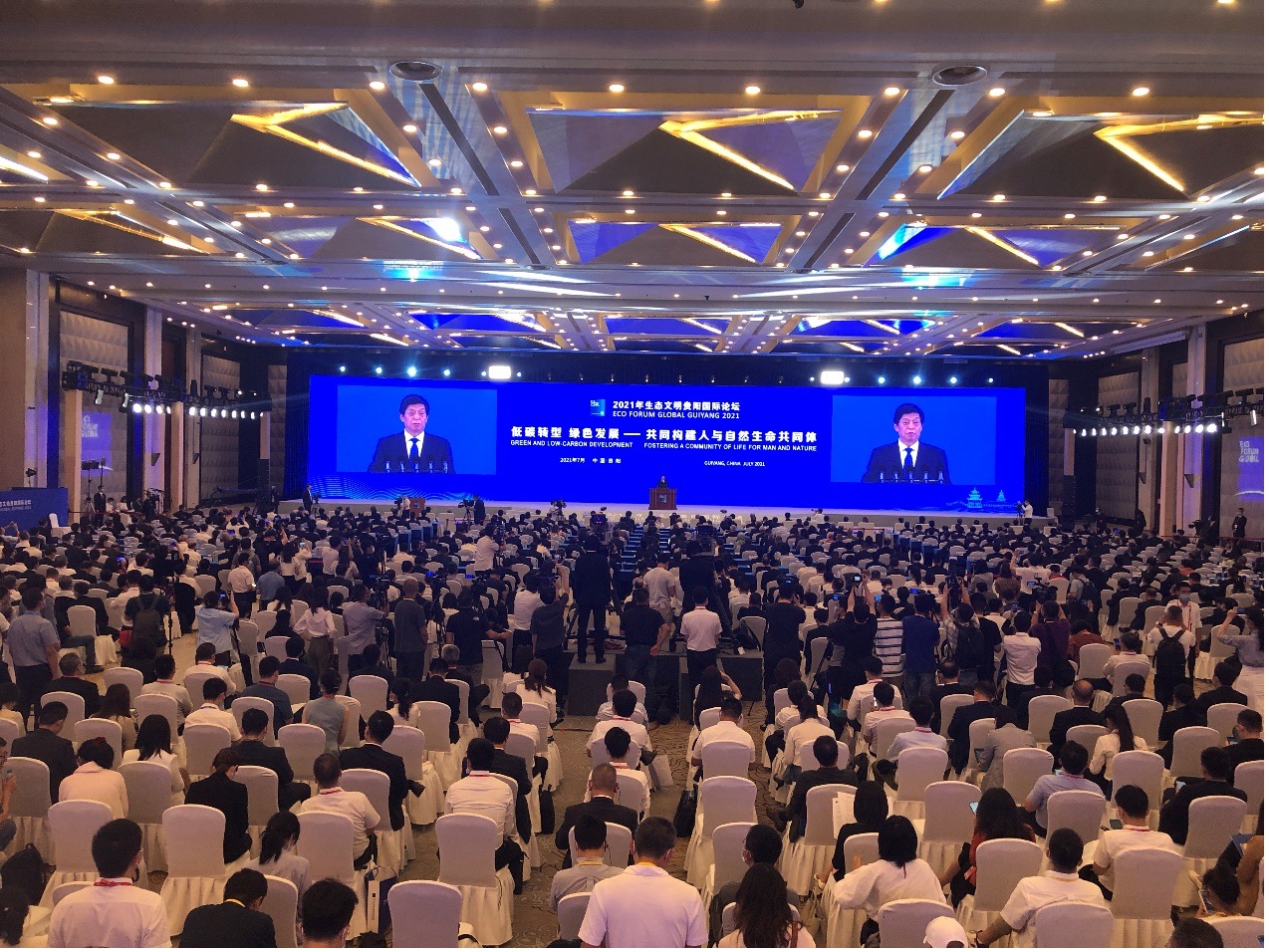
Opening ceremony
One of the thematic sessions, themed on “Protect the Ecology of Rivers and Lakes, Practice Ecological Civilization” and co-hosted by the People’s Government of Guizhou and the Ministry of Water Resources (MWR), was successfully organized on the afternoon of July 12. Prof. Joseph Lee and Dr. Jing Peng were among the other officials, experts and scholars who had attended and talked.
Prof. Lee delivered a keynote speech entitled “Water Ecological Civilization Implementation in an International Megacity” (slides). He briefed IAHR’s strategic plan and shared information on three topics namely innovative flood control in sponge cities, new generation sewage strategies and harmful algal blooms proliferation and fishery management through a case study of Hong Kong. On this basis, Lee put forward the problems facing the current construction of smart cities and offered IAHR solutions, receiving an active response from leaders and experts present. Finally, he stressed that countries across the world and international organizations should work together to address global challenges by cementing cooperation on ecological civilization, enhancing the ability to monitor the ecological environment and improving scientific research.
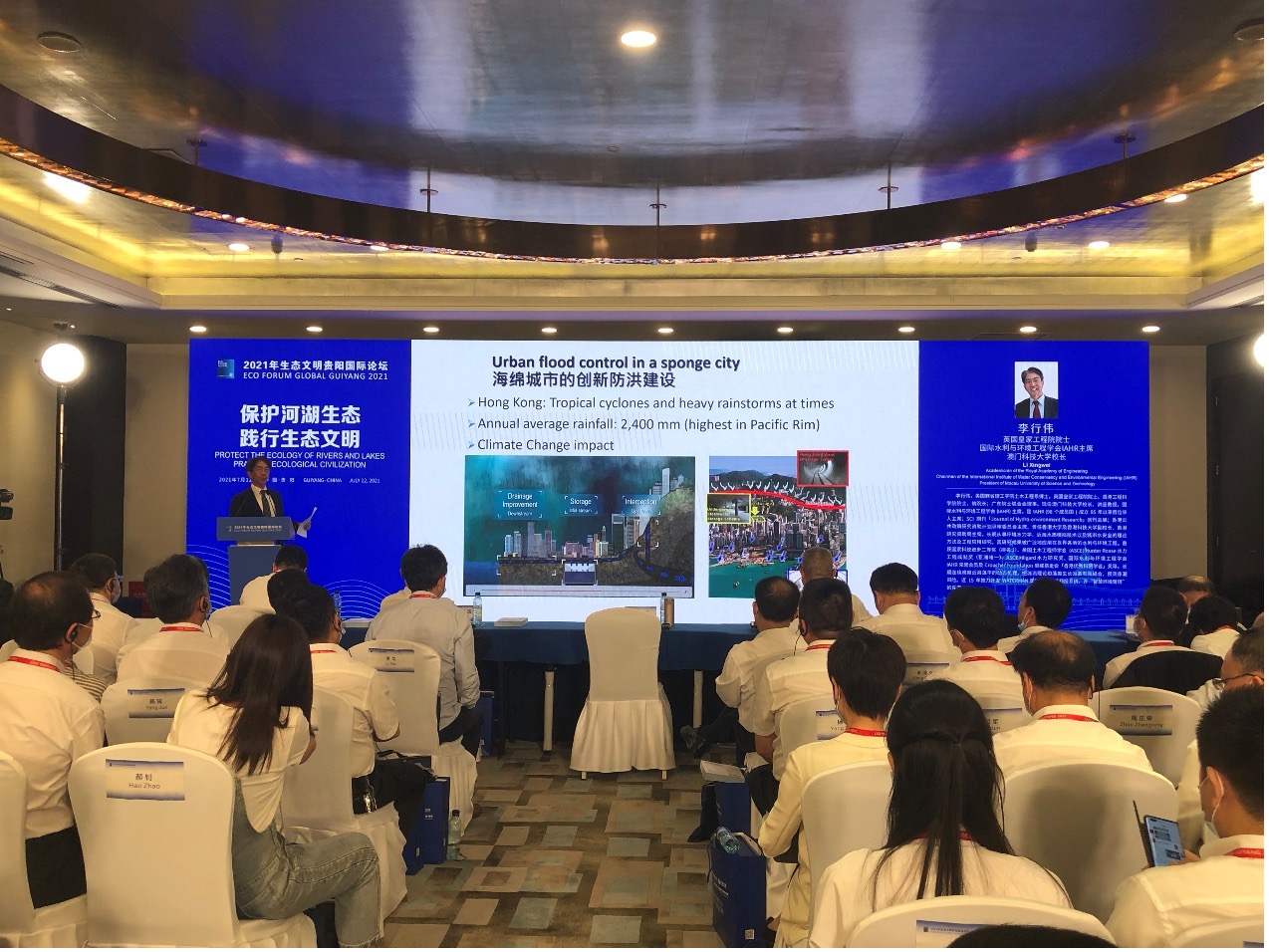
Prof. Lee shares successful cases
Ms. Peng Jing introduced the latest outcomes of the China River Happiness Index Report and gave a general interpretation of the report from the perspective of the connotation of “River/Lake Happiness”, construction of evaluation methods and evaluation and analysis of main rivers in China.
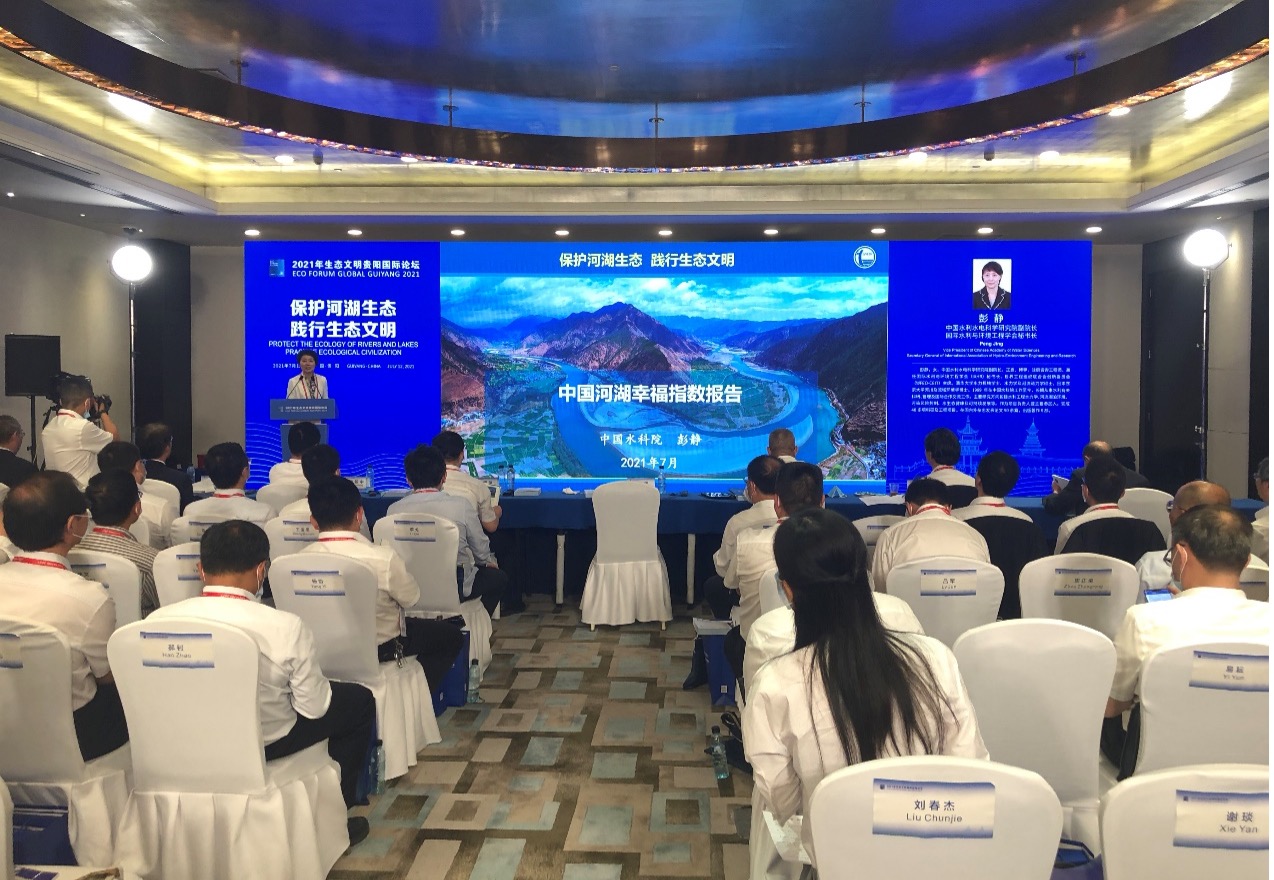
Secretary General Peng Jing shares research results
After the session, a delegation led by Prof. Lee visited the Baojiatun Ancient Water Conservancy Project in Daxiqiao Town, Xixiu District, Anshun City, Guizhou Province. Built in the second year of Hongwu (1369 A.D.) during the Ming Dynasty, the project is a complete hydraulic engineering system composed of two river channels, seven dams, five main canals, several branch canals, a watermill and two stone bridges. Based on the original river channel, a second one was dug artificially by dividing the upstream channel into two through “a fish mouth type dividing dike” to form “two rivers surrounding farmlands”, so that the farmlands covering a total area of more than 2,000 mu (about 133 ha) at different elevations could receive gravity irrigation over the past 600 years, ensuring stable yields despite droughts or floods. Featuring a reasonable layout and integrating various functions such as irrigation, water supply, drainage and hydropower utilization, the engineering system is hailed as a “miniature Dujiangyan” and a model of a combination of local villagers’ survival wisdom and the natural environment.
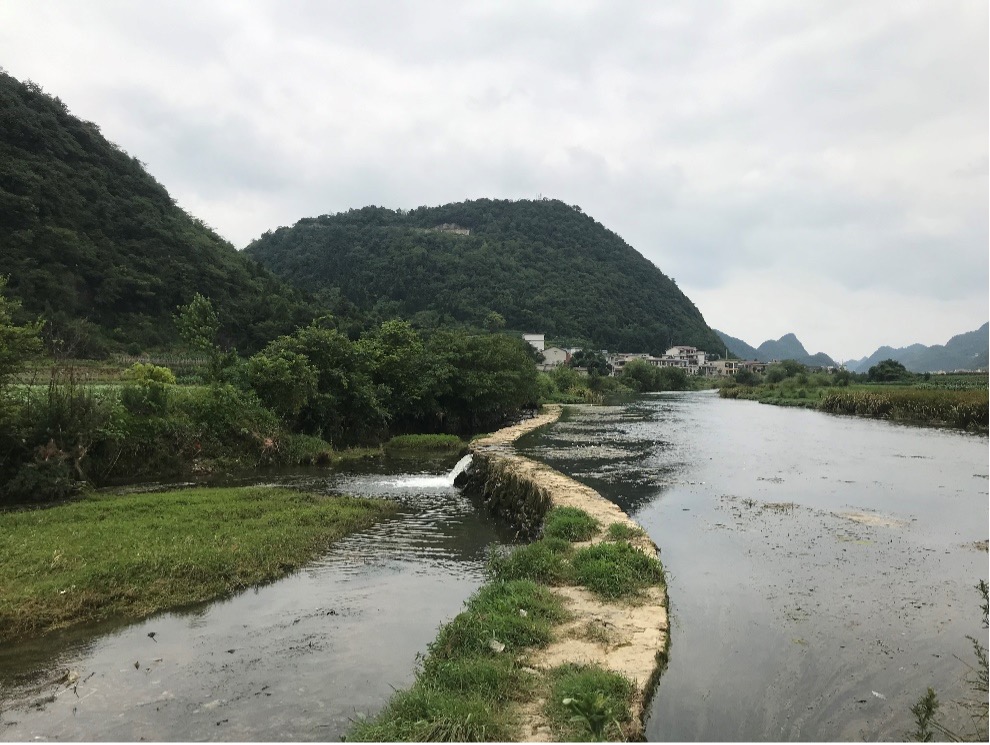
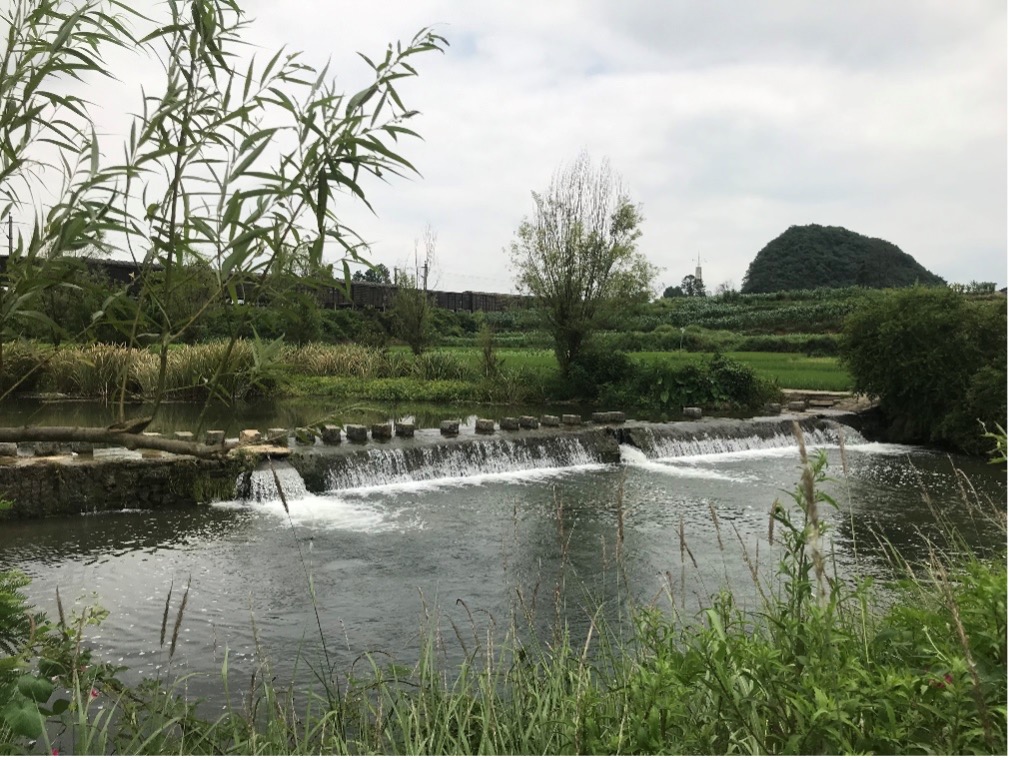
Baojiatun Ancient Water Conservancy Project
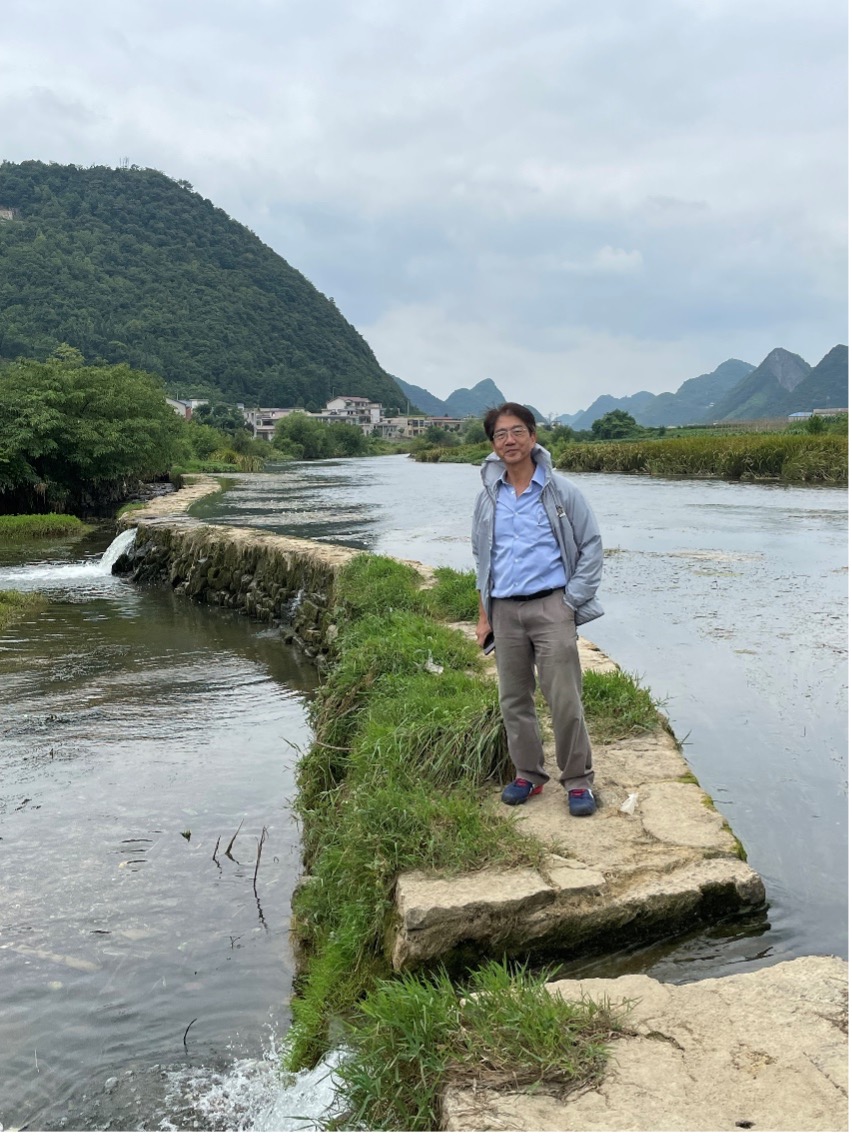
Prof. Lee visits the Baojiatun project
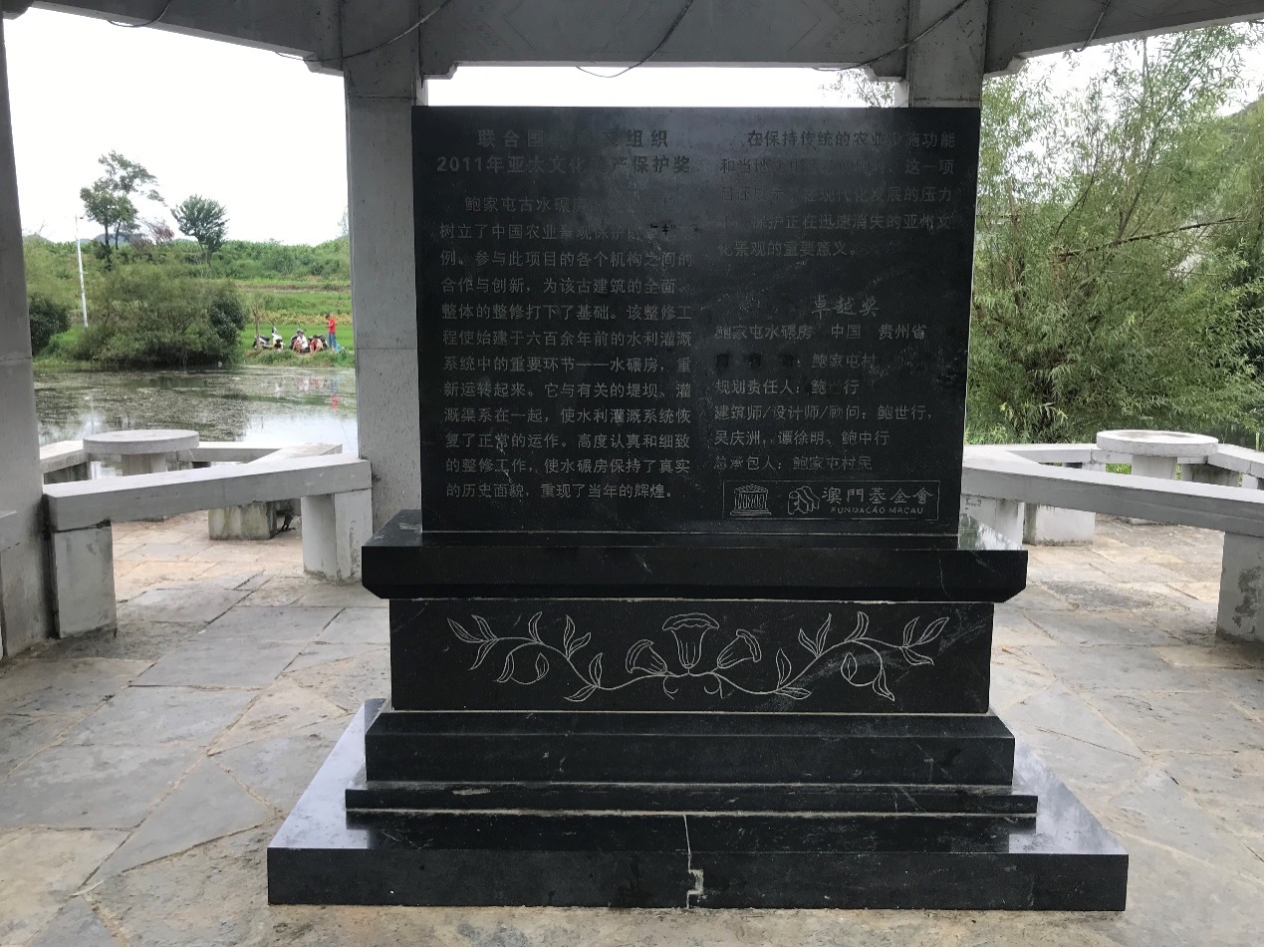
At the Siyuan Pavilion by the Baojiatun Ancient Water Conservancy Project stands a stone monument commemorating the watermill’s winning the “Asia-Pacific Award for Cultural Heritage Conservation 2011”